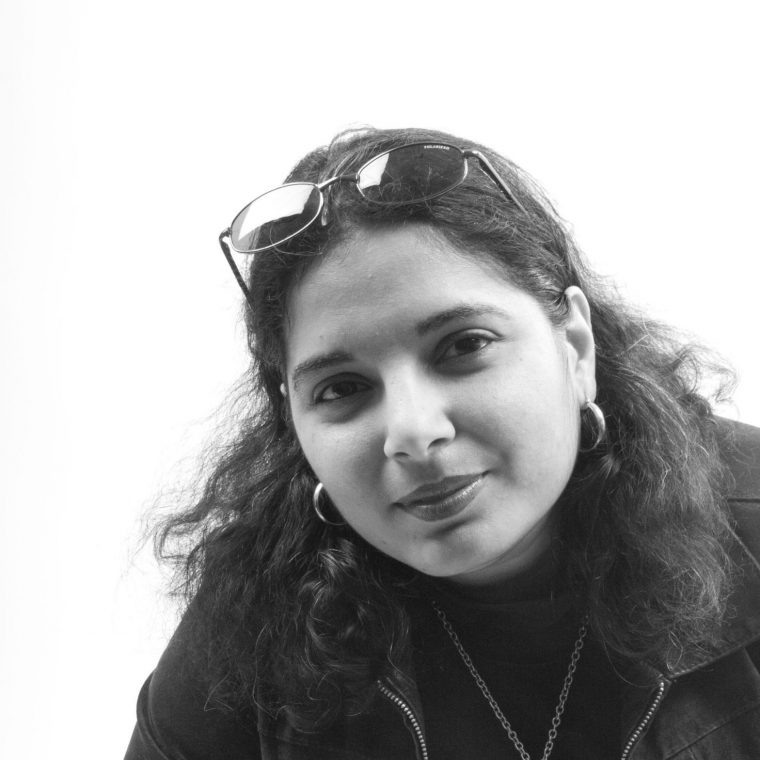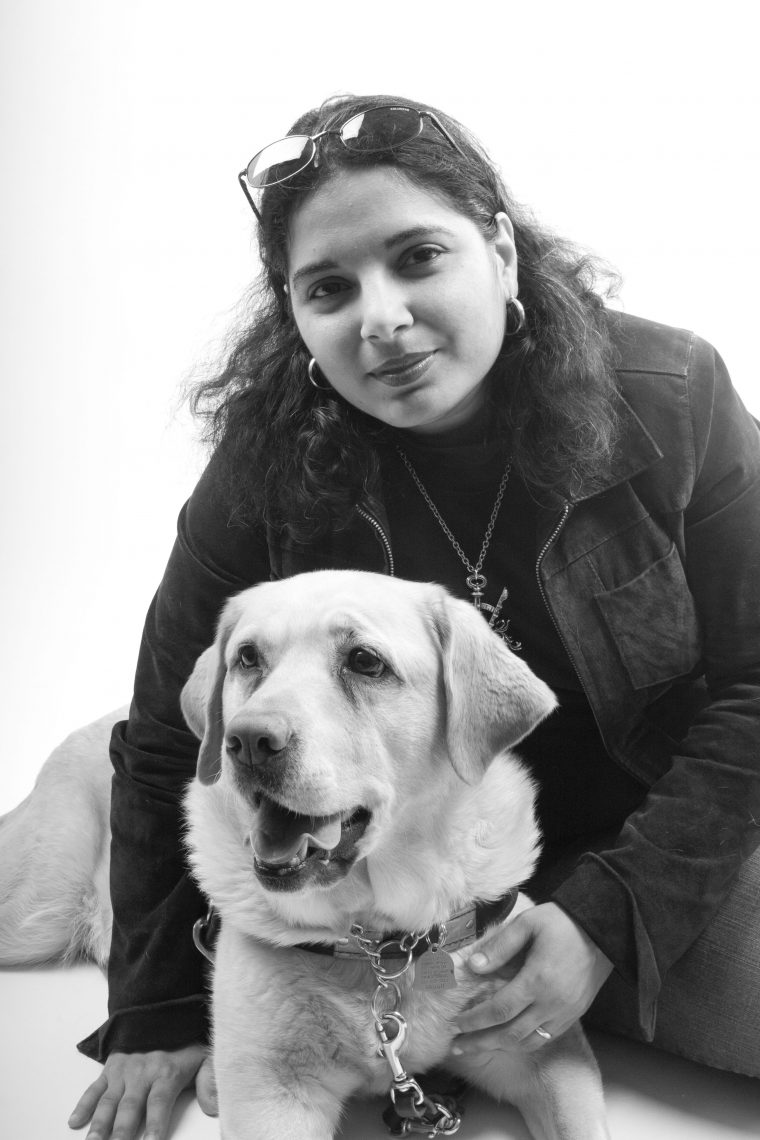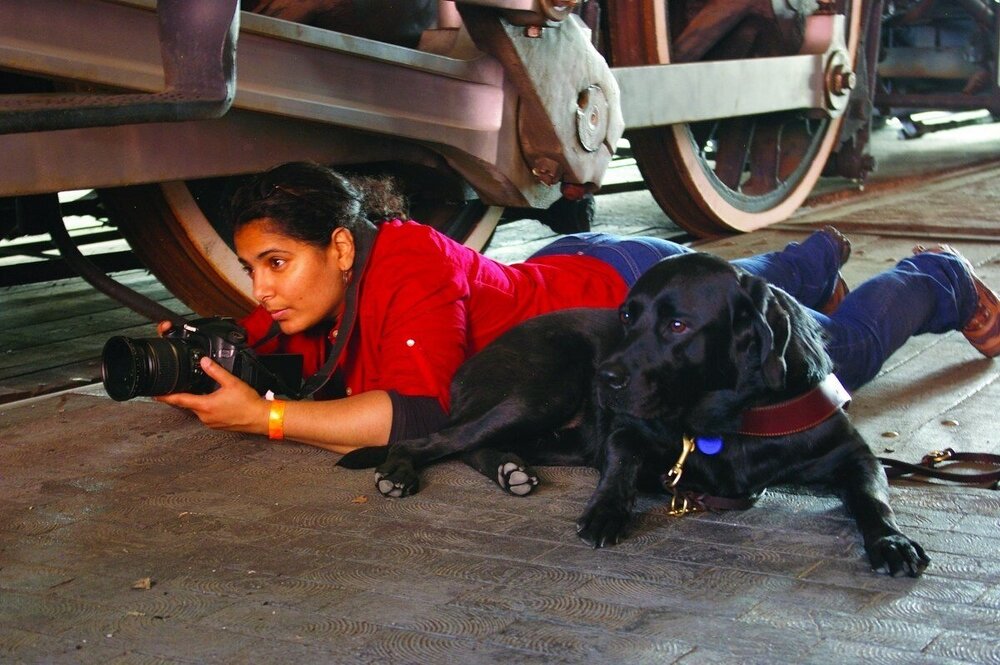Read about Day Al-Mohamed, the keynote speaker for this year’s Disability Culture Month. Al-Mohamed is a Mizzou Law School alum, activist, documentarian and attorney who works in Washington, D.C.
She will discuss disability representation in media from 5 to 6:15 p.m. on Sept. 28. Register for the talk on Engage.

Tell us a little about yourself.
I’m a senior policy advisor for the U.S. Department of Labor. I head the Occupational Safety and Health Administration’s premier safety and health management recognition program, the Voluntary Protection Programs.
My other work at the Department of Labor has included the design and implementation of the multimillion-dollar Add Us In initiative to identify and develop strategies to increase employment opportunities for individuals with disabilities by working with small business associations in underserved and historically excluded communities and policy design and improvement on youth workforce and employment.
I’ve been a lobbyist for more than 10 years addressing a variety of legislative and regulatory areas including disability, health care, immigration and international development. This included an active role in the passage of the Affordable Care Act and the Hate Crimes Prevention Act.
While still at Mizzou, I worked on the planning committee for the Civil Rights Group of the Cambio de Colores conference, the largest conference that directly addresses the various issues faced by Latino immigrants to the Midwest and served as a representative of the ISC-ICC to the Preparatory Commission of the International Criminal Court (ICC) at the United Nations.
Outside of my policy work, I write books, make films and am a part-time radio host on Idobi Radio’s Geek Girl Riot with an audience of more than 80,000 listeners. My Civil War documentary, The Invalid Corps, recently sold to Alaska Airlines, and my historical series on disability — Renegades — was just released on American Masters PBS in July 2021.
I serve as staff officer for U.S. Coast Guard Auxiliary Flotilla 24-01 and on the Montgomery County Commission for People with Disabilities. I read romance novels, eat potato chips and have yet to meet a cheese I don’t love.
What motivated you to get involved with disability issues?
I think, one of the things about having a disability is that you don’t really get a choice on whether or not you want to get involved with disability issues. It follows wherever you go and because of structural inequities in the way the world is physically built, the way programs are designed and the stereotypes that people believe, advocacy is always a part of what you do. That was true when I worked on policy issues and is just as true in my writing and filmmaking.
So happy to hear that you’re a Mizzou alum (M-I-Z!). Has your time at Mizzou and Mizzou Law shaped your career?
Mizzou was a great foundation where I felt like I had some time and space to explore who I was and what I wanted to learn and do with my life. It was while I was at Mizzou that I got my first internship at the Missouri House of Representatives. And from there, a career in legislative and regulatory policy was an easy step.
What drew you to become a documentary filmmaker?
I was already writing books but came across this story about disabled soldier regiments in the Civil War. No one really wants to read a Civil War history book (unless you’re already interested in the topic), so I was looking for something that could appeal to a broader audience. Film was a natural expansion.
How my first documentary came to be made is also a romantic story. Every year, my wife and I do something new together. We each get to pick. A few years ago, she picked ballroom dancing, I picked a documentary film class. The goal of the 8-week class was to create a short one- to two-minute film.
My one-minute piece became the trailer for The Invalid Corps. We spent the next five years doing research, building the team and acquiring funding — including through Kickstarter — to make the final film.
Your keynote will be the marquee event of MU’s Disability Culture Month this year. What does disability culture mean to you?
Disability culture is the celebration of the uniqueness of disability; it is about visibility, pride and changing societal perceptions of value and contribution. It isn’t about people with disabilities being included in society but how people with disabilities drive and transform society.
If there’s one key takeaway or thought that you’d like to share about Disability Culture Month, what would that be?
Disability culture and activism have existed from ancient times to present, but we rarely hear about people with disabilities from our own perspective. Our lives and our stories are framed from an “able-bodied view”: victims, people to be pitied, or the converse, inspirational champions who have “overcome.” But most of us exist somewhere in between.
Disability is defined by the values of the society in which it exists. The struggle to define the disability experience is the struggle to make a more just society for everyone.
This quote also resonates with me:
“When those who have the power to name and to socially construct reality choose not to see you or hear you, whether you are dark-skinned, old, disabled, female, or speak with a different accent or dialect than theirs, when someone with the authority of a teacher, say, describes the world and you are not in it, there is a moment of psychic disequilibrium, as if you looked into a mirror and saw nothing.” — Adrienne Rich, (Disabled) Poet
How can we connect with you? Can you share your social media handles?
You can find me at @DayAlMohamed on both Twitter and Instagram!

